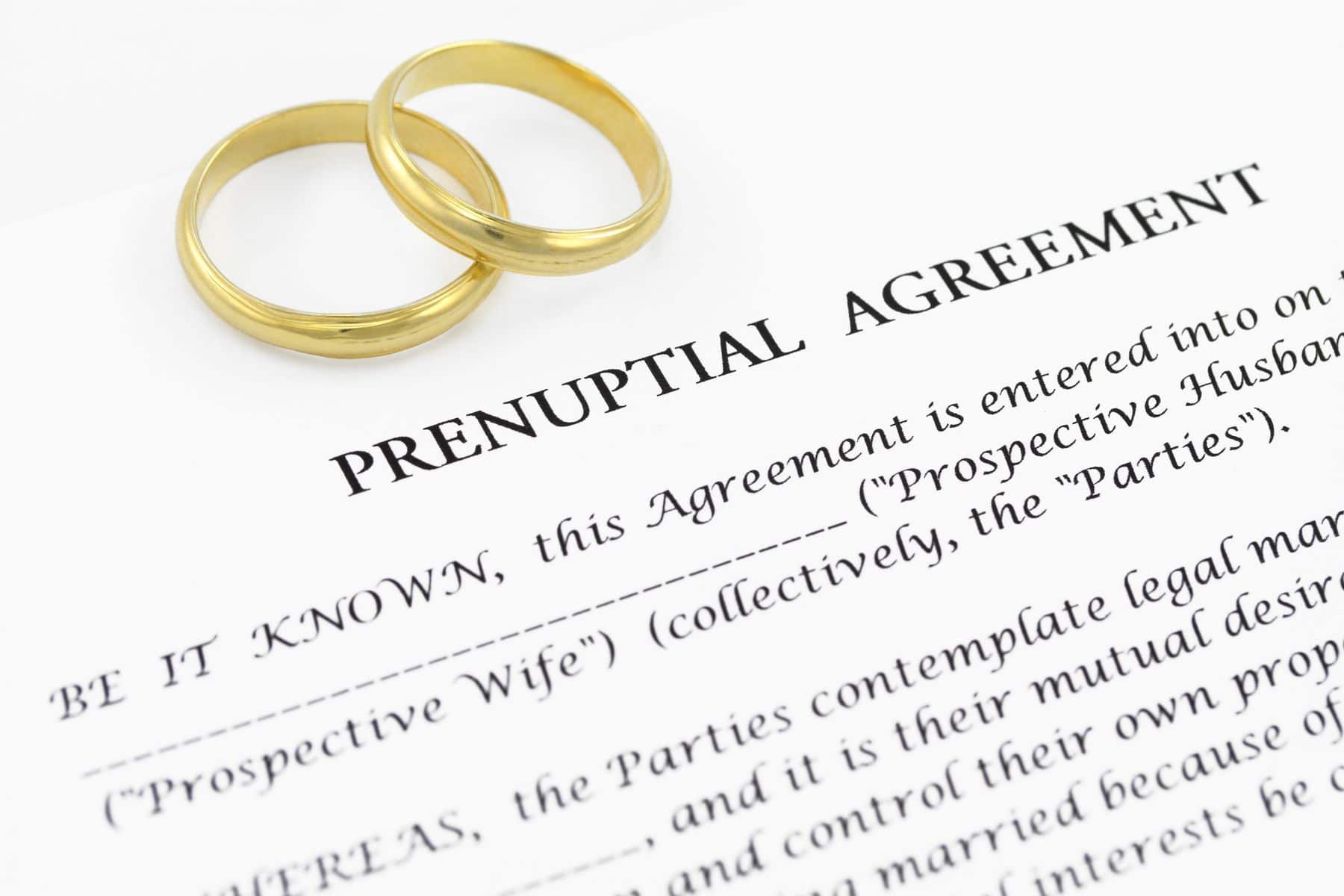A couple who wants to protect themselves and their assets may decide to sign a prenuptial agreement before marriage. There are many good reasons to make use of a prenuptial agreement (also called a “prenup”). For example, you can protect your individual assets and personal property going into the marriage. Also, you can set out how to distribute assets should you divorce. Finally, you can protect assets should you remarry.
-
Protecting Your Individual Assets
Many people already own important assets when they get married. For example, each spouse may own separately:
- A house
- Family heirlooms
- An inheritance from relatives
- Distributions from a trust
- A business
- Valuable investments
In addition, spouses often have debts or obligations going into marriage. They might be paying child support, have credit card debts, or have student loans.
A prenuptial agreement can protect the individual assets that each spouse values from being split up in a divorce. In addition, it can keep one spouse from being saddled with the other spouse’s debts and obligations. A good agreement describes the specific assets, debts, and obligations that will remain the separate property of each spouse. Our lawyers can help prepare an appropriate agreement.
One asset that might warrant a prenup is a high income. If one spouse earns a lot more money than the other, the high earner might want a prenup to protect herself or himself should they divorce. Otherwise, the high earner might owe spousal support and/or alimony. A prenuptial agreement gives the spouses the opportunity to safeguard their individual assets before the possibility of divorce is ever mentioned.
-
Distribution of Assets in a Divorce
A prenuptial agreement can come in handy if the marriage, unfortunately, doesn’t work out. The agreement’s terms of dividing assets upon divorce can override state laws on property distribution. For example, a prenuptial agreement could state that the couple does not want their assets divided by North Carolina’s equitable distribution method. Instead, the agreement would set forth a different distribution method.
Because a prenuptial agreement explains how to divide a couple’s assets, it can save time and money in a divorce proceeding. It also can help avoid conflicts over asset distribution during what may be a very difficult time for a family. If desired, a prenup also can explain how to distribute assets if one of the spouses dies.
-
Protecting Assets in a Second Marriage
Getting married again can bring a new set of challenges, such as combining households and separate lives. Should you marry again, you may want to sign a prenup with your new spouse to protect the assets you have already.
For example, people who remarry may have individual assets that they want to remain separate property. There may be issues of alimony or support from the previous marriage to work out, as well as other debts or obligations. In addition, they may have children from the previous marriage. A prenuptial agreement can specify how these children will receive an inheritance should one of the spouses die (in combination with a will and/or trust).
While it may sound odd to discuss the possibility of divorce before you even get married, a prenup can be very helpful for many people. A prenup can help protect individual assets from becoming part of the marital estate. It can describe how to distribute assets in case of divorce, saving the hassle of the court distribution process. And it can protect you and your children if you decide to remarry. If you have questions about signing a prenup, or want to know more about the benefits of doing so, reach out to our team of experienced professionals today.
Let New Direction Family Law Assist You
Do you need advice about signing a prenup? The team at New Direction Family Law is available today to answer your questions. Our attorneys are knowledgeable, effective, and compassionate professionals with decades of combined legal experience. We will help you understand your legal rights and work hard toward your best outcome. We proudly serve clients in Wake, Johnston, and Durham counties. Contact New Direction Family Law at (919) 646-6561 to schedule a consultation, or visit us at our website.





